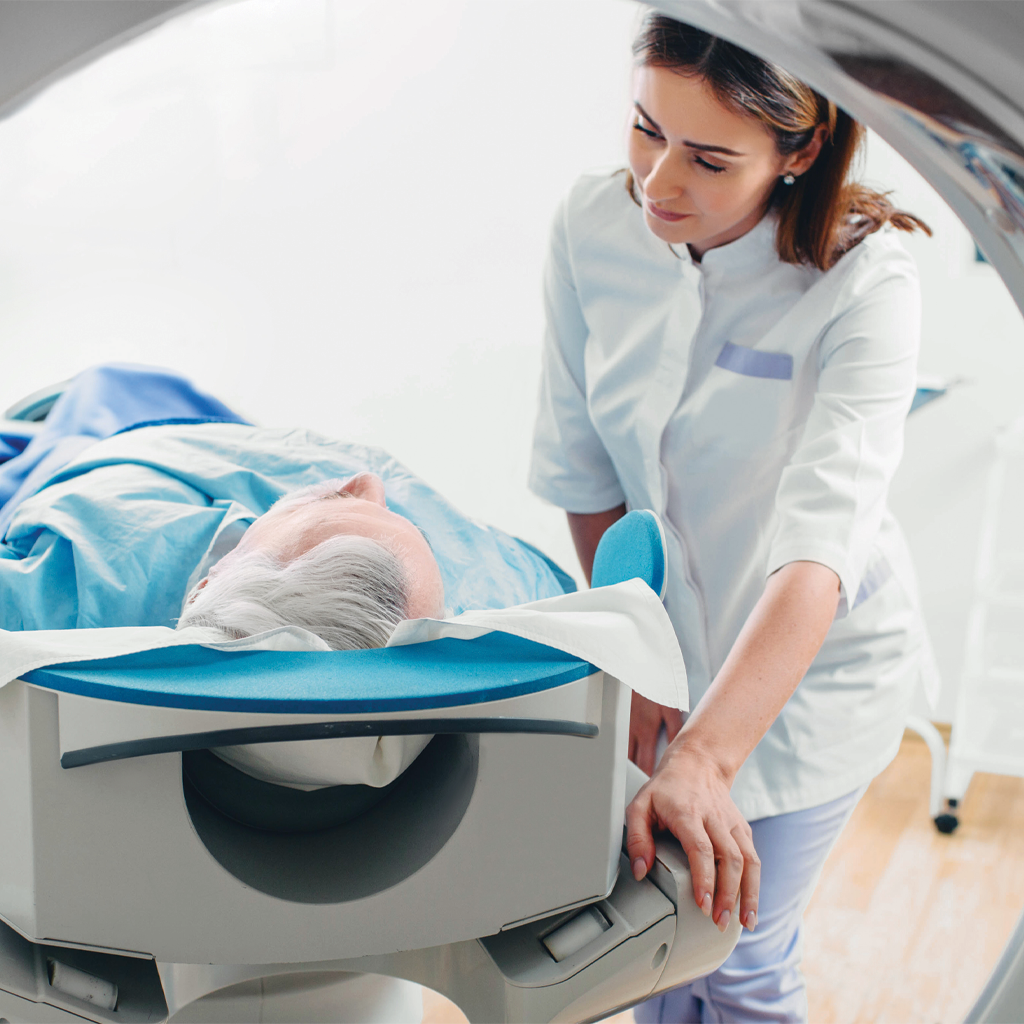CT (Computed Tomography)
Computed Tomography (also called CT, CT scan or CAT scan) is an X-ray based medical imaging technique that produces more detailed images of your internal organs than conventional X-ray tests. It is used to obtain internal images of your body noninvasively to help your doctor arrive at an accurate diagnosis of your condition.
Using CT, your doctor can distinguish between adjacent tissues of similar composition that are indistinct on conventional X-ray images. For example, a plain X-ray of your abdomen will show bones and at best subtle outlines of the liver, stomach, intestines, kidney and spleen. But a CT scan reveals with clarity and precision not only these structures but also the pancreas, adrenal glands, ureters and blood vessels. It is used to detect abnormalities within the bones or muscles, diseases or cancer within the chest and abdominal organs such as the heart, lungs and kidneys, and more.
There is little reason to worry about the small amount of radiation you will be exposed to when you receive an CT scan. However, if you are pregnant or suspect that you may be, you should tell your physician or our technologist before the test is performed as special precautions may have to be taken.
Preventive health screenings
In addition to diagnosing various health conditions, CT is also used for preventive health. Just like a mammogram is used to detect breast cancer at its earliest stages, CT can detect heart disease, lung cancer and colon cancer before it becomes life-threatening.
Coronary calcium score (heart disease screening)
Heart disease remains the nation’s leading cause of death. Unfortunately, many do not find out they have heart disease until it’s too late. The coronary calcium score is a fast and safe CT scan of the heart. It is the only non-invasive test that can accurately detect—or rule out—the presence of heart disease in otherwise healthy individuals. The test uses advanced low-dose CT imaging and special software to detect the presence of plaque in the coronary arteries.
CT Angiography
A special technique to visualize arteries and veins, CT angiography (or CTA) is used to evaluate stenosis, aneurysms, dissections and blockages in the vessels. Unlike traditional angiography, CTA is fast and non-invasive. In some cases, the injection of a contrast agent (dye) is needed to help visualize the blood vessels.
Low-dose lung CT (lung disease screening)
If you’re a current or former smoker, or have other risk factors for lung cancer, a low-dose lung CT screening may be right for you. It is a completely non-invasive test, and more effective than X-ray at detecting smaller, earlier stage cancers.
In many cases, LDCT screening is covered by insurance. Please ask your insurance company if your plan covers you. If not, it is offered as a cash payment option at RAR.
Virtual colonoscopy (colon cancer screening)
Also known as CT colonography, this test uses a CT scan to produce two- and three-dimensional images of the colon. It is just as accurate as the traditional colonoscopy test but requires no sedation and no colon scope. It is ideal for those who have avoided their colon screening for various reasons, or those who are at a lower risk for colon cancer.
CT Virtual Colonoscopy requires a specific 24-hour preparation. Call us for more information.
With most CT exams, no special preparation is required. In advance of your exam, please inform your radiologist or technologist if you:
- Have had a previous adverse reaction to iodine contrast injection
- Have renal disease
- Are over 65
- Have asthma and use an inhaler two or more times per day
- Are diabetic and taking glucaphage

